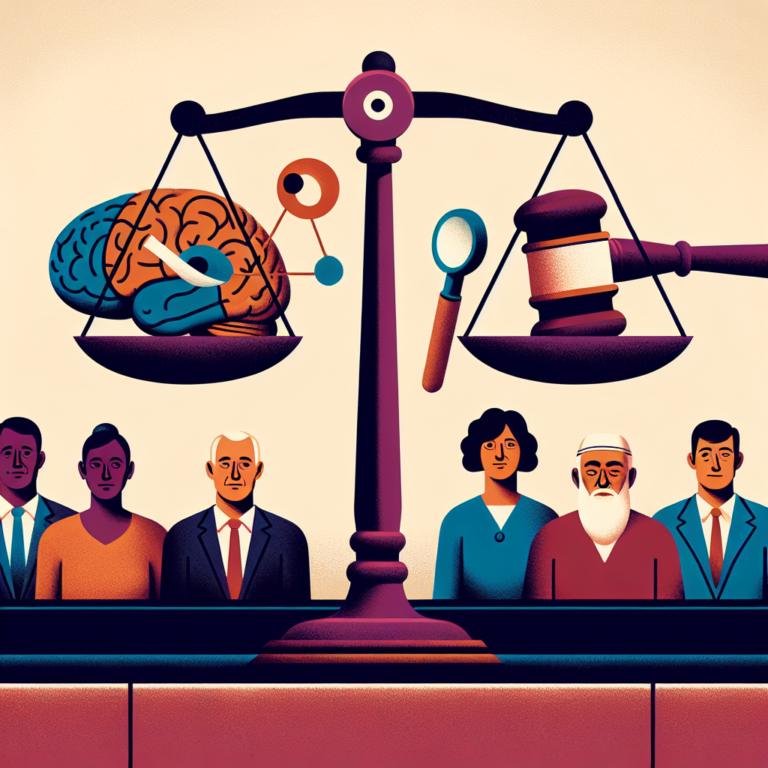
Introduction
In an era where technology reigns supreme, the emergence of the digital landscape has given rise to a new breed of criminal—the cybercriminal. These "digital deviants" operate in the shadows of society, exploiting vulnerabilities in technology for personal gain. But what compels individuals to engage in such illicit activities? This exploration of The Digital Deviant: Psychological Factors Driving Cybercriminal Behavior aims to delve into the intricate psychological motives behind cybercrime, shedding light on how personal, social, and economic factors intertwine to form a potent brew of deviance.
As the world becomes increasingly reliant on digital connectivity, the consequences of cybercrime ripple through economies and communities. Understanding these psychological factors is not just a fascinating intellectual exercise; it’s essential for law enforcement, policymakers, and everyday internet users alike. Through a combination of case studies, statistical insights, and psychological theories, this article aims to offer a compelling narrative into the minds of those who venture into the murky waters of cybercrime.
Understanding Cybercrime: A Brief Overview
The Definition of Cybercrime
Cybercrime encompasses a range of illegal activities that are carried out using computers or the internet. These include hacking, identity theft, online fraud, and the distribution of malicious software. The motivations for these acts can vary widely—from financial gain to political statement—making them complex phenomena worth examining.
Types of Cybercriminals
Cybercriminals can be broadly categorized into several types:
- Hacktivists: Individuals or groups who utilize hacking as a form of protest.
- Fraudsters: Those who engage in schemes designed to extract money or personal information from victims.
- Organized Crime Syndicates: Professional criminals operating on a larger scale, often with intricate networks.
- Script Kiddies: Inexperienced individuals who use existing scripts or tools to carry out cyber attacks without a full understanding of the technology involved.
Each type brings unique psychological factors into the fold of The Digital Deviant: Psychological Factors Driving Cybercriminal Behavior.
Psychological Factors That Contribute to Cybercriminal Behavior
1. Social Influence
Social dynamics can play a powerful role in driving individuals toward cybercrime. The desire for acceptance, recognition, or membership within a particular social group—especially in online communities—can compel individuals to participate in illegal activities.
Case Study: A well-documented example is the rise of online hacktivist groups like Anonymous, where individuals rally around a collective identity. The influence of group dynamics can diminish individual accountability and embolden members to partake in cybercrime.
2. Anonymity and Detachment
The digital world offers a veil of anonymity that fosters risky behavior. Individuals often feel detached from the consequences of their actions when confined to screens. This sense of invulnerability can lead to heinous acts without immediate remorse.
Statistical Insight: Research indicates that 70% of cybercriminals believe they won’t be caught, primarily due to the anonymity of their actions. This belief significantly lowers the psychological barriers to engaging in cybercrime.
3. Socioeconomic Stressors
Economic hardships can push individuals into cybercriminal behavior out of desperation. The allure of quick financial gain through cyber scams can outweigh the perceived risks involved.
Case Study: In the wake of economic downturns, studies show spikes in identity theft and phishing attacks. One such example is the economic crisis of 2008, which led to a significant increase in fraudulent online activities as individuals sought ways to cope with financial distress.
4. Personality Traits
Certain personality traits correlate with higher tendencies toward cybercrime. For instance, those with high levels of narcissism may be more prone to engage in online fraud, using manipulative tactics to achieve their desired outcomes.
Table: Psychological Traits and Cybercriminal Behavior
| Personality Trait | Description | Relation to Cybercrime |
|---|---|---|
| Narcissism | Excessive self-interest or grandiosity | Increased likelihood of online fraud |
| Psychopathy | Lack of empathy and remorse | Willingness to engage in harmful acts |
| Low Conscientiousness | Impulsivity and disregard for rules | Higher risk of engaging in illegal activities |
5. Motivation and Reward Systems
The brain’s reward system plays a crucial role in reinforcing harmful behaviors. Cybercriminals often experience a rush of adrenaline and a sense of accomplishment when successfully executing a cybercrime, which can lead to a cycle of repeat offenses.
Case Study: In the case of notorious cybercriminals like Kevin Mitnick, the thrill of hacking and evading law enforcement became addictive, propelling him into a life of crime that spanned several years.
The Role of Mental Health in Cybercrime
Mental Health Issues
Various mental health challenges can influence an individual’s propensity to engage in cybercrime. For instance, those suffering from anti-social personality disorder may lack the empathy needed to comprehend the harm caused by their actions.
Coping Mechanisms
For some, engaging in cybercrime serves as a maladaptive coping mechanism to alleviate feelings of inadequacy, boredom, or anxiety.
Example: The rise of cyberbullying can be linked to underlying issues such as depression or low self-esteem, where individuals lash out online as a way to exert control in their own turbulent lives.
Prevention and Mitigation Strategies
Education and Awareness
One of the most effective strategies for tackling cybercrime revolves around educating potential victims and at-risk individuals about the consequences of their actions. Awareness campaigns that highlight the psychological factors behind cybercriminal behavior can deter individuals from engaging in such activities.
Law Enforcement and Policy
Effective law enforcement strategies require an understanding of the motivations behind cybercrime. By implementing psychological profiling and targeted interventions, law enforcement agencies can better address the root causes of cybercriminal behavior.
Community Support Systems
Creating robust support systems in communities, especially for those facing economic stressors, can mitigate the risks of individuals engaging in cybercrime.
Conclusion: Avoiding marginalization through mentorship and community engagement can provide alternative paths for those tempted to engage in cybercriminal behavior.
Conclusion
Understanding The Digital Deviant: Psychological Factors Driving Cybercriminal Behavior is essential in a technology-driven society. This exploration reveals that the reasons behind cybercriminal activity are complex, involving a tapestry of social influences, mental health issues, and personality traits. By shining a light on these psychological factors, we can create proactive measures that not only deter potential cybercriminals but also support individuals at risk of falling into the trap of cyber deviance.
Actionable Takeaway
If you’re part of a community or organization, consider implementing discussions or workshops focused on cyber ethics and the consequences of cybercrime. Awareness can be a powerful tool in preventing individuals from becoming digital deviants.
FAQs
1. What are the main motivations behind cybercrime?
Cybercrime motivations include financial gain, political agendas, social acceptance, or even personal satisfaction from engaging in deviant behavior.
2. Are all cybercriminals mentally ill?
No, while some may have mental health issues, many cybercriminals are simply individuals who exploit the digital landscape for personal gain without any identifiable psychological disorders.
3. How can communities prevent cybercrime?
Through education, awareness programs, and creating economically inclusive environments, communities can help deter individuals from engaging in cybercrime.
4. Is cybercrime a victimless crime?
Although it may seem so, cybercrime often has significant repercussions for victims, including financial loss, emotional distress, and loss of personal data.
5. What role does anonymity play in cybercrime?
Anonymity can lower psychological barriers and embolden individuals to engage in risky behaviors, fostering a belief that they won’t face consequences for their actions.
By understanding the complexities of The Digital Deviant: Psychological Factors Driving Cybercriminal Behavior, we can take informed steps toward creating a safer digital world for everyone.















